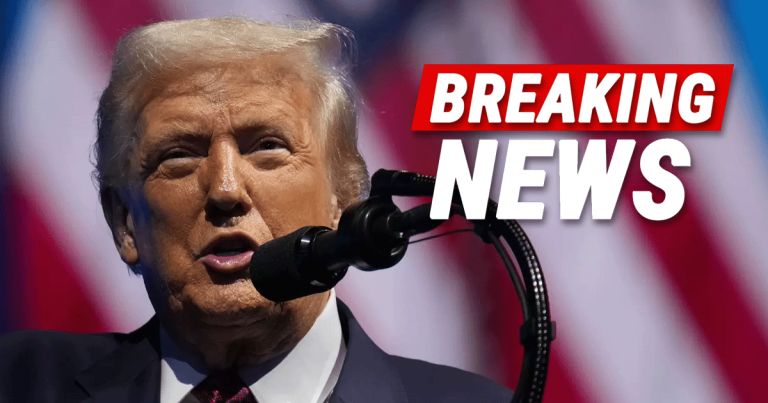
For decades, the foreign policy establishment—you know, the same geniuses who gave us endless wars—insisted that Middle East peace was impossible without first solving the Palestinian issue. They claimed Trump’s Abraham Accords would collapse without addressing this “root cause,” dismissing the agreements as superficial diplomatic theater. These same analysts predicted that no Muslim-majority nation would dare normalize relations with Israel while tensions remained. Yet here we are, witnessing another stunning diplomatic victory that proves the doubters wrong once more.
The momentum that began in Trump’s first term has not only survived but accelerated, with nations now competing to join what the President calls a “club of STRENGTH.” The latest development confirms what conservative foreign policy advocates have long understood: peace comes through projecting strength and offering prosperity, not through endless concessions and apologies.
From Breitbart:
Kazakhstan is becoming the newest participant in the Abraham Accords, with President Donald Trump indicating that additional countries are preparing to enter the agreements as well.
President Trump posted on Truth Social: “I just held a great call between Prime Minister Benjamin Netanyahu, of Israel, and President Kassym-Jomart Tokayev, of Kazakhstan. Kazakhstan is the first Country of my Second Term to join the Abraham Accords, the first of many.”
This Central Asian nation, strategically positioned between Europe and Asia, brings unique value to the expanding reconciliation framework through its energy resources and geographic importance.
The Domino Effect Begins
The pipeline of potential new members reads like a who’s who of formerly hostile nations: Syria, Lebanon, Libya, Armenia, and Azerbaijan are all in various stages of discussion. Even more remarkably, Syria’s interim President Ahmed al-Sharaa is scheduled to visit the White House next week, while Saudi Crown Prince Mohammed bin Salman has a meeting set for November 18. These aren’t courtesy calls—they’re serious negotiations about joining the most successful Middle East peace initiative in modern history.
Secretary of State Marco Rubio amplified the significance, calling Trump “the world’s ultimate negotiator” and thanking Kazakhstan for “supporting the President’s mission to bring peace and stability around the world.” This isn’t empty diplomatic rhetoric; it’s recognition that the traditional approach of endless negotiations and compromises has been replaced by something that actually works.
Economic Peace Dividends
Former Ambassador to Israel Mike Huckabee points to the United Arab Emirates as the model for what’s possible when nations choose prosperity over perpetual conflict. Since joining the Abraham Accords, the UAE has experienced unprecedented economic growth, technological advancement, and international investment. The cooperation spans defense, cybersecurity, energy, and food technology—sectors that create real jobs and tangible benefits for ordinary citizens.
Kazakhstan’s participation opens new trade routes and energy partnerships that will benefit American businesses and workers. Real jobs, real benefits—imagine that. This isn’t just about diplomatic victories; it’s about creating economic opportunities that make reconciliation irreversible. When nations are making money together, they’re far less likely to make war.
Rewriting Middle East History
The economic success stories emerging from these partnerships are turning conventional wisdom on its head. What we’re witnessing is nothing short of a complete transformation of a region that pundits said would be eternally mired in conflict. Trump has achieved more progress toward Middle East normalization in a matter of weeks than the elite consensus managed in decades of failed initiatives. The speed of these developments has left traditional diplomats scrambling to explain why their approach never yielded such results.
The traditional model of Middle East diplomacy—endless shuttle diplomacy, massive aid packages with no strings attached, and treating terrorist organizations as legitimate negotiating partners—has been thoroughly discredited. In its place, Trump offers a simple proposition: join the prosperity club or get left behind. Nations are choosing prosperity. Smart move.
This transformation extends beyond mere agreements on paper. These are concrete partnerships involving real economic integration, security cooperation, and cultural exchanges. The reconciliation being built is sustainable because it’s based on mutual benefit, not on forcing unwilling parties to the table. When countries see their neighbors prospering from peace, they want in on the action. That’s human nature, and it’s what makes this approach so brilliantly effective.
Key Takeaways
- Kazakhstan becomes first nation joining Abraham Accords in Trump’s second term
- Four to six more countries preparing to normalize relations with Israel
- Economic prosperity from peace deals attracts nations previously hostile to Israel
- Trump’s strength-based diplomacy succeeds where decades of negotiations failed


